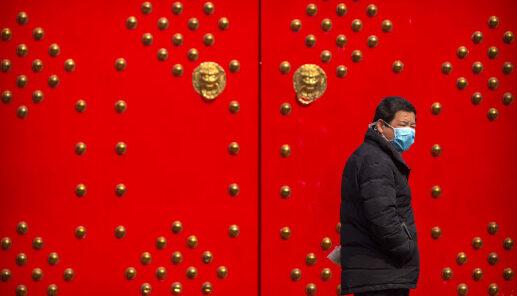Africa-Press – Lesotho. Forget all the talk of economic colonisation: China wants African votes, not African ports.
While Africa’s value to the outside world has historically been framed largely in economic terms — as a place to extract resources and as a market to sell goods — China is changing that equation.
The fact is, Africa just isn’t that important to China economically. All 54 African countries combined account for less than 4% of China’s $4+ trillion global trade balance, and Beijing still lags far behind the U. S. , France, and others in terms of FDI.
I know this is counterintuitive. 9.9 out of 10 people you meet who want to talk about the Chinese in Africa will start the conversation by going on about Beijing’s appetite for natural resources or its ambitions to drown the continent in unsustainable loans.
The fact is that most of the oil, timber, and minerals China buys from Africa (accounting for about 70% of all African exports), can now be sourced from dozens of other places along the Belt and Road.
Take oil, for example. Former U. S. Ambassador and acclaimed China-Africa scholar David Shinn noted that in 2008, China imported 30% of its oil from African countries.
By 2018, that number had fallen to just 18%. And as the Chinese become more reliant on Saudi and Iraqi oil, their dependence on African suppliers will continue to decline.
And what about all those loans that we’ve been talking about in such detail over the past several months? Sure, it’s a lot of money… but not really. Remember that we’re talking about $154 billion or so of outstanding loans in Africa to a Chinese economy worth around $13 trillion.
Don’t get me wrong, these loans are important to the Chinese but if Africans can’t or don’t repay them it’s not going to hurt China in any meaningful way. China’s new priorities in Africa are increasingly political, not economic.
That 25 African countries signed on to the United Nations Human Rights Council statement supporting China’s position on the introduction of a new national security law in Hong Kong provides far more insight into what Beijing prioritizes today.
Forget about the commodities that the Chinese can pretty much buy anywhere. Beijing is becoming more interested in the African votes that bolster its global standing and support core strategic interests in its increasingly acrimonious stand-off with the U.
S, Europe, and others. The more pressing question now is whether African stakeholders fully appreciate that their political capital may actually be worth far more to the Chinese than all those raw materials they’ve been selling them for the past two decades?
For More News And Analysis About Lesotho Follow Africa-Press





![THE RULING PARTY [ RFP] MPs DEFECT TO DC AND BAP THE RULING PARTY [ RFP] MPs DEFECT TO DC AND BAP](https://static.africa-press.net/lesotho/sites/62/2026/02/sm_1771363891.997697-218x150.jpg)
